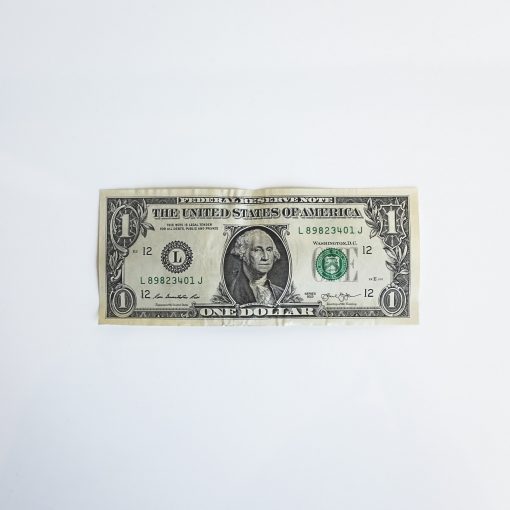Most small business owners cannot access financing from their bank or through Small Business Administration programs because of various requirements which include high credit score requirements and voluminous financial reporting requirements. So, many small business owners turn to alternative lenders who offer less rigorously attained products such as Merchant Cash Advances to finance their business needs. However, many small business owners who take on such financing know little about MCAs. In fact, we also find that many MCA brokers do not understand much about what they are selling. The purpose of this series of articles is share vital information about what Merchant Cash Advances are, what they are not, and important information for small business owners to consider when either working with or considering securing.
By Thomas Tramaglini, Managing Director – BRP Onesta
info@BRPOnesta.com
www.backofficedepot.com
www.thomastramaglini.com
About Thomas Tramaglini
The Stats Don’t Lie – Small Business Owners Need and Want Funding
According to the US Small Business Association (SBA), in 2020 there were over 32 million businesses in the United States and the US Census Bureau reported that nearly 10 million new businesses were started during the years 2020 and 2021.
As small businesses begin to grow, small businesses usually need some sort of financing so they can expand their operations. For instance, a restaurant owner may need to add new equipment because that equipment might quadruple their revenue. An HR Firm may need to hire more staff because they are attempting to insert themselves in a local market that is targeted. Some small businesses also take on short term financing to close gaps in revenue or to realize better cash flow. Regardless of use, small business owners need and want business financing. In 2020, the SBA also reported that over 50% of all small businesses have borrowed money in the past 5 years.
However, with it being so hard to secure low-cost financing, what do small business owners do to attain the funds necessary to run and grow their businesses?
The Merchant Cash Advance
The need for small businesses to attain funding combined with difficulty of small businesses to attain funding from banks has served as the catalyst to the alternative lending industry growing into a multi-billion-dollar industry.
That said, one of the most common avenues for small business owners is the Merchant Cash Advance.
What is a Merchant Cash Advance (MCA)?
An MCA is not a loan but an advance of a business’ future receivables. Lenders gauge how much to advance a small business owner in several ways, including previous credit card sales and revenue going into their business bank account. Variables such as industry, number of deposits, daily balances among others are used by the lender to hedge risk. Regardless, MCA lenders offer to advance a portion of a small business’ future sales as well as an agreement with the business owner on the percentage of future sales which are being sold to the lender.
A Merchant Cash Advance (MCA) is one of the easiest funding options for small business owners because MCAs are unsecured, do not require strong credit, usually do not require collateral, and require little documentation (if any). The average MCA file can be funded within a day and usually requires several months of business bank statements.
Interest and Terms
MCAs do not carry interest. Advances carry factor rates, which are also called buy rates that are simply an agreement of how much of a small business’ future sales will be paid to the lender. Some advances may also collect repayment terms by taking a portion of business’ credit card receipts each day as well until their agreed sale of future receivables is completed. MCA payback frequency varies depending on the risk and bank account statistics. For instance, if a borrower wants to have a monthly or weekly payment the lender gauges that opportunity off the average daily balance of the business in the business bank account. When daily balances are variable or lower MCA lenders may require a daily payment.
Probably the most negative part of an MCA is cost of money. MCAs can be expensive. That is, MCAs can be as high as +50% in payback. Also, most advances carry origination fees for the work by the lender, which can be as high as 10% of the loan. MCA cost of money is like how credit card cash advances operate and, in some cases, better.
Advantages of MCAs
Merchant cash advances have several advantages for small business owners, and some can include:
- Fast funding – Some MCA companies can fund small businesses in 90 minutes.
- Most MCAs do not have UCC liens.
- MCAs are not usually reported on personal credit.
- Funds are unsecured.
- Payment frequency can be flexible at times.
- Most MCAs do not carry a personal guarantee.
- Easily refinance options which can cut costs.
- No early payback penalties.
- Small business owners can build a relationship with the lender ultimately securing better programing.
- Few required documents (including taxes) for funding.
Is an MCA right for your business?
This article focused on the need and application of the Merchant Cash Advance for small business owners. In part, MCAs can be a beneficial piece to a small business and its growth. However, MCAs should be taken with caution, as business owners should know the rules, payback terms, as well as the associated profit margins.
If you have questions, you can always contact our team here.
You can always explore our discounted options for Merchant Cash Advances which we usually find financing 10%-20% lower than our competitors.
Dr. Thomas Tramaglini is the Managing Director for BRP Onesta, a company that supports small businesses. By offering a host of important and affordable services that small business owners tend to not have time to do themselves, the team at BRP Onesta can help small businesses grow infinitely. Although located in on the famous Jersey shore, BRP Onesta serves clients in all 50 states, Puerto Rico, Mexico and Canada.





